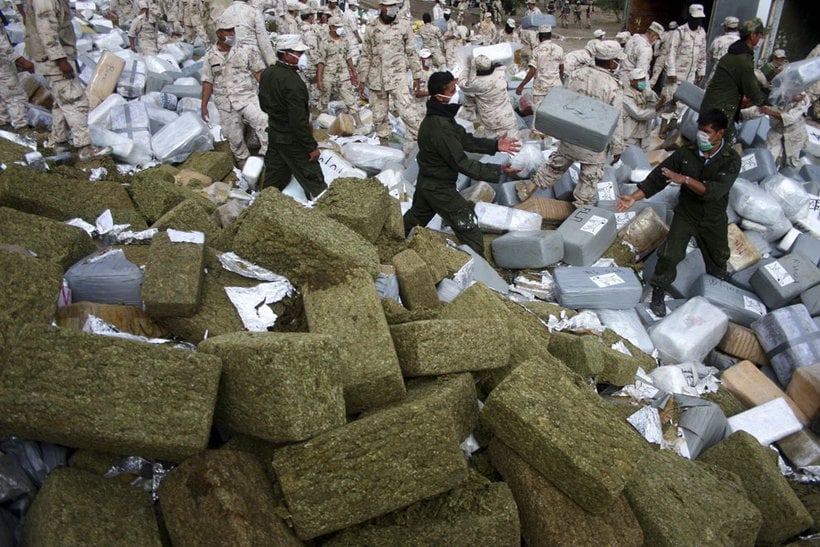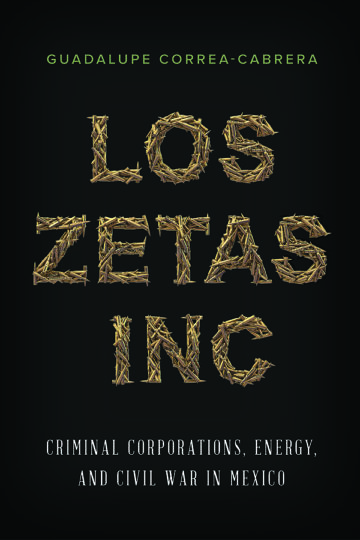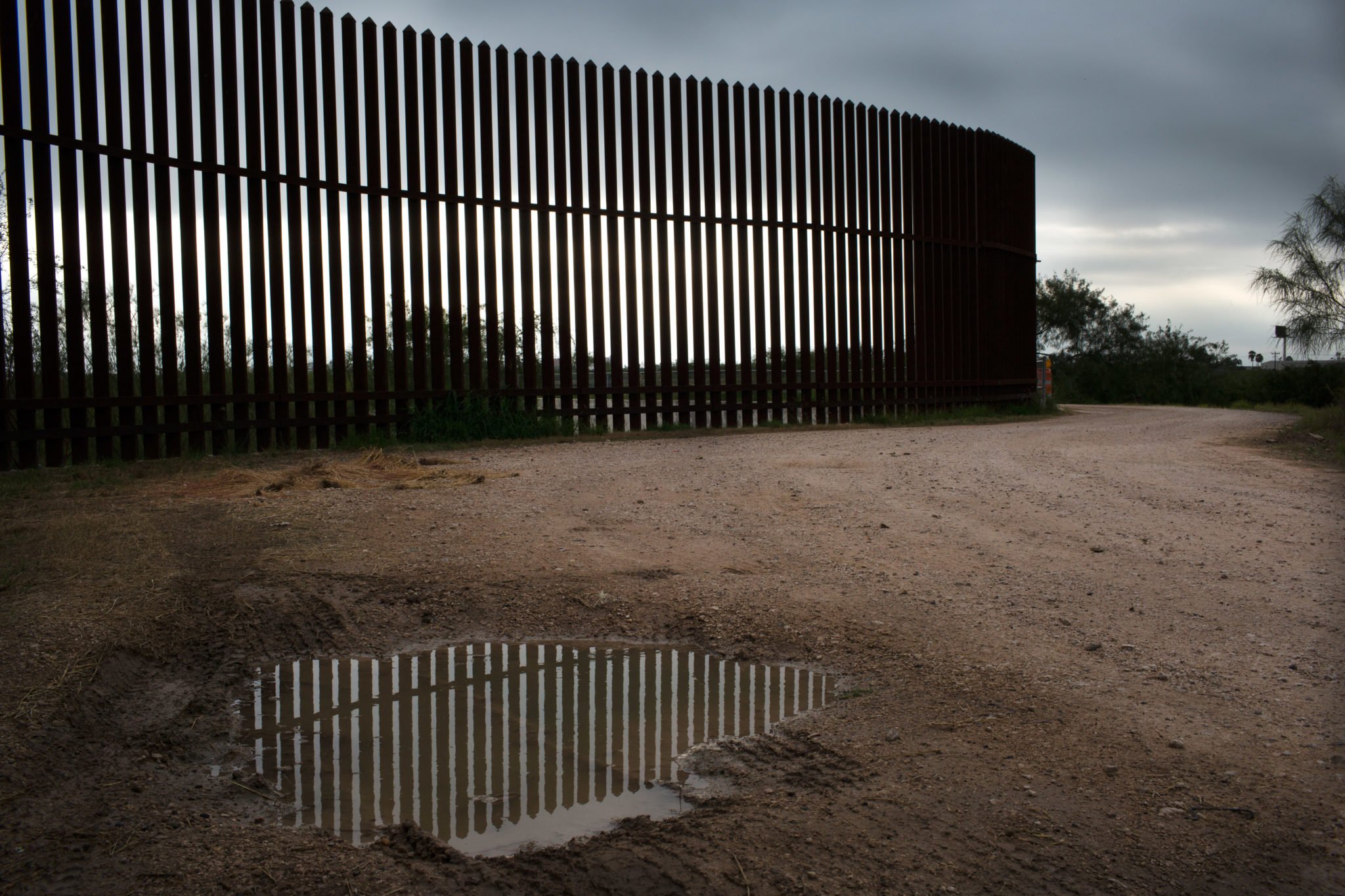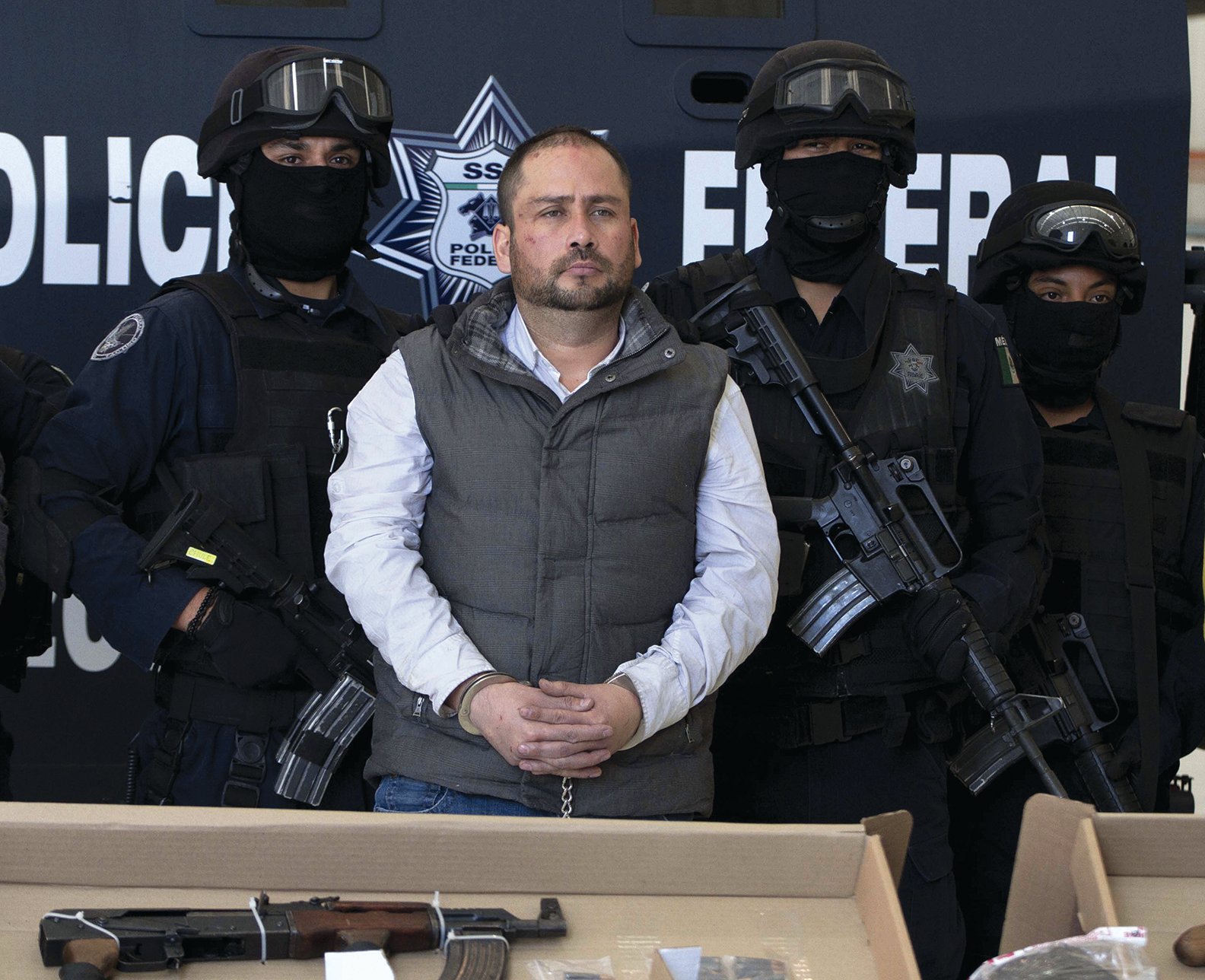
‘Los Zetas Inc.’ Author on Why Mexico’s Drug War Isn’t About Drugs
The Zetas and groups like them have morphed into transnational corporations with interests in everything from coal mining and the extraction of oil and gas to cornering the market on avocados.
For more than a decade, Mexico has been embroiled in a drug war that has resulted in unprecedented violence. In 2016 alone, nearly 23,000 homicides were reported across the country — more than in any nation other than Syria. While grim statistics like these have grabbed headlines, there’s been a dearth of critical, in-depth analysis of the conflict, its causes and its evolution into what scholar and author Guadalupe Correa-Cabrera has likened to a civil war.

By Guadalupe Correa-Cabrera
University of Texas Press
$29.94; 400 pages University of Texas Press
In her compelling new book Los Zetas Inc., Correa-Cabrera follows the rise of the Zetas, Mexico’s first paramilitary cartel, and the government’s military response. Authorities responded to the Zetas by unleashing thousands of soldiers into the streets, which only spurred greater acts of violence. Correa-Cabrera, an associate professor at the Schar School of Policy and Government at George Mason University, spent seven years researching and conducting interviews for the book in some of the most dangerous regions of the country, including Tamaulipas and Veracruz. Correa-Cabrera looks at organized crime from an economic perspective and argues that the term “drug cartel” is outmoded: The Zetas and groups like them have morphed into transnational corporations with interests in everything from coal mining and the extraction of oil and gas to cornering the market on avocados. Los Zetas Inc. also asks: Who benefits from the chaos of the drug war?
Correa-Cabrera spoke with the Observer about her family’s brush with the Zetas, what made the cartel unlike any of its predecessors and why the drug war isn’t really about drugs.
Q: You write at the beginning of the book that your father’s business was extorted by the Zetas, and eventually he had to abandon the business altogether.
Yes, my father had a lumber mill in the state of Michoacan. In 2006, the Zetas arrived. My father and many other business owners received a phone call demanding that they pay the Zetas money for protection. My father ignored the first call. Then he received another call threatening my brother, who was helping run the lumber mill. My father made the decision not to pay. And he and my brother were forced to abandon the lumber mill and leave Michoacan.
Other business owners agreed to pay, but when the Zetas split from the local cartel La Familia there was a clash, and then both wanted protection money. So the business owners were trapped between the two warring groups. Many of them were kidnapped and killed — some of them my father’s friends. Even today, his land is still abandoned and my father hasn’t gone back. This is happening today in Tamaulipas [a Mexican border state with Texas] and other parts of Mexico, too.
How did the Zetas change the conflict in Mexico?

They were the former armed wing of the Gulf Cartel and were formed at the beginning of this century by special forces soldiers who had deserted the military. They utilized counterinsurgency practices, military training and weaponry. And they were the first paramilitary cartel. Other cartels started their own paramilitary groups to counter the Zetas, and then the government sent the military out in response. And the violence exploded.
Groups like the Zetas are not even drug cartels anymore in the traditional sense. They are more like a transnational company with many branches, including the politicians, the migrant smugglers, the sicarios [hitmen] and the money launderers. And they market their brand of fear through decapitations, narco banners and narco blockades. All someone has to do is say he is a Zeta, and the people will pay the extortion or the ransom because they already know what the Zetas are capable of.
The U.S. media often interviews you about the drug war in Mexico. Does it frustrate you that after so many years, the narrative around the conflict has scarcely changed in the American media?
Yes. The U.S. media still portrays it as a war between the good and the bad — the Mexican government and the drug cartels. But there was a whole other level of violence injected into the conflict after former President Felipe Calderón sent the military out to the streets to fight the cartels [in 2006]. There’s also no recognition that there are economic interests at play, and there’s no intention to explore other explanations for the violence. How do the Zetas and other groups get access to so much military equipment? Where are the arms coming from, and who is facilitating the entrance of so many arms to Mexico? Why do the anti-drug trafficking programs never stop the flow of drugs across the border, but just keep generating more profits and more violence? When I was doing my research in Tamaulipas and speaking to citizens there, no one ever talked about drugs. What they talked about was the military, about natural resources and about extortion.
So at the heart of your book is the idea that the drug war isn’t really about drugs, it’s about controlling territory and resources?
Correct. I started mapping the different conflicts in Tamaulipas. And when I looked at the GIS maps, it showed me a different kind of pattern than I expected — an expansion into places that weren’t really necessary for drug trafficking but where there were natural resources. A lot of the violence coincided with the Cuenca de Burgos [the southernmost reach of the Eagle Ford shale that extends into northern Mexico]. In 2010, there were media reports of the Zetas stealing oil and selling it to companies in the United States. I also found conflicts in other regions of Mexico, where there is coal, copper, water and gold.
In fact, isn’t much of the violence generated by this synthesis between organized crime and politicians?
Yes. For instance, in the state of Coahuila, you see connections between [former governor] Humberto Moreira and the Zetas. There’s a lot of documentation about the state-owned electric company buying coal from the Zetas [who had taken over some of the coal mines in Coahuila], then turning around and selling energy to the federally owned power company. Obviously, a lot of these criminal organizations have grown thanks to the support of the Mexican authorities. Federal, state and local authorities have been involved in criminal activities and have facilitated the operation and expansion of these paramilitary groups. There are still many questions and links that can’t be proved yet. What is clear is that some already-powerful groups have benefited or will potentially benefit from Mexico’s armed conflict, including transnational energy companies and private security corporations.
How can Mexico end this conflict?
Two things: Mexico needs to change its strategy to fight organized crime, because the militarization strategy has not given the desired results. The second is a fierce battle against corruption with the maximum punishment and penalties against politicians and federal authorities, including members of the armed forces, who have operated hand in hand with the criminal organizations. We need to fight corruption from the top down and imprison those who are responsible for this crisis in Mexico. We need to see them in jail, so it sends a clear message to everyone that the corruption will no longer be tolerated.


